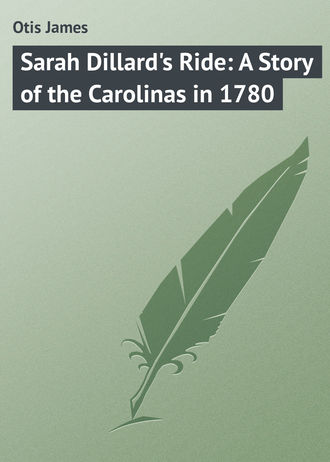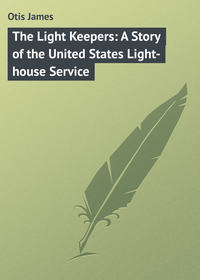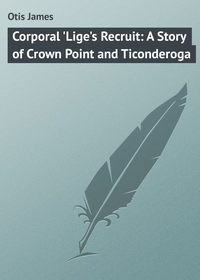 полная версия
полная версияSarah Dillard's Ride: A Story of the Carolinas in 1780
The boys could hardly believe their ears were not deceiving them.
That they should be set free at so small a price, and in face of all the threats Ephraim Sowers had made, was news so joyful as to be incredible, and their astonishment was such that neither made reply until the major asked impatiently:
"Well, well, do you refuse to do even that much in order to earn your liberty?"
"Indeed we do not, sir," Nathan cried eagerly. "We are willing to repeat whatsoever you desire, and to as many as you shall say, no matter how far it may be necessary to travel."
"Are you acquainted with all the rebel leaders hereabouts?"
"With nearly all of them, sir; and I promise that Captain Dillard, Colonel McDowells, or Colonel Campbell – all three gentlemen with whom we have acquaintance – will put us on the way to find those others in this section."
"And you swear faithfully to repeat every word of the message I give you, to each of those rebels who is in command of a dozen or more men?"
"Yes, sir."
"Mind, I am saying that you deserve to be hanged; but at the same time I am in need of messengers, and believe that even though you are among the enemies to the king, I can trust you two."
"We will perform all that we promise, sir."
"And see to it that you do. I am sent into this portion of the Carolinas by General Cornwallis to crush the spirit of rebellion, and here I shall stay until my work be finished. Therefore if you lads attempt to play me false there will come a reckoning, for we shall meet again."
"Even though we be rebels in the sight of the king, we hold to our word, and that both of us have given. We will swear to it in whatsoever manner may be most convincing to you, sir."
"I shall take your word, knowing that the time will speedily come when I can punish you to the fullest extent if you break it. Now say to all the rebels in and about this section of the colonies, even though you are forced to travel many a day, that I have come from General Cornwallis' army unhampered by any orders other than those to crush out the spirit of rebellion, and that if they do not desist from their armed resistance to the king's commands and take protection under my standard, I will march my army over the mountains, hang their leaders, and lay waste their country with fire and sword."
These words he required the boys to repeat for him twice over, and that done, he added:
"Remember what will be the result if you attempt to deceive me. Now go, and see to it that you rest not until the message be delivered to all those in rebellion within a circle of fifty miles. Captain Depuyster, will you take care that they have safe conduct outside our line of sentinels. If the boy Sowers chooses to follow them in the hope of getting his revenge, it will not be in my power to prevent him."
Then with a gesture Nathan and Evan were dismissed, and they walked out of the room as if in a daze, for it did not seem to them possible they had thus been dismissed from captivity.
CHAPTER VII.
AT WATUGA
Captain Depuyster, who had been charged by Major Ferguson with seeing that the boys were passed through the line of sentinels surrounding the encampment, lingered behind for a moment to speak with the commander, and the newly-released prisoners were still in such a maze of bewilderment at having been given their liberty that they failed to realize there might be necessity for a captain's escort.
They went out of the dwelling, past the sentinels at the door in silence; it was as if neither dared to speak lest the sound of his voice might cause the British commander to reconsider his determination.
Without so much as looking behind them to learn if Captain Depuyster was following, for as a matter of fact they hardly heard the command which Major Ferguson gave relative to their departure, they went straight from the door toward the trail which led to Greene's Spring; but before having advanced twenty paces they were brought to a halt as Ephraim Sowers stepped in front of them.
"Have a care you rebels!" the Tory cried threateningly. "Don't get the idea that you can run away whenever the fancy takes you, for I am not to be caught at a disadvantage every hour in the day, as I was last night."
"If we come in contact with you again there will be more damage done than when we contented ourselves with making you prisoner," Nathan said sharply. "Stand aside, or it will be the worse for you."
Ephraim looked up in surprise that the prisoners should have retained such an independent bearing after their interview with the major, for he counted upon their having been reduced to abject submission. He was not to be frightened by their threats, however, now that he was in the open air with the redcoated soldiery all around him; and instead of obeying Nathan's command he brandished his fists as he cried:
"Get back to the house until I can learn what is to be done with you."
"We will give you the information without any necessity for your returning," Evan said with a laugh, which only served to irritate the Tory. "We have Major Ferguson's permission to depart, and count on doing so without allowing ourselves to be delayed by such as you."
"Major Ferguson's permission to depart!" Ephraim repeated stupidly.
"Step aside, or we may be called upon to put you out of our path with more force than is agreeable."
"You lie when you say the major has released you!"
"Hark you, Ephraim Sowers; I am not minded to get into a brawl hereabouts; but so much as repeat that word, and I shall give no heed as to the consequences," Nathan said sternly. "You and I have a long reckoning to be settled, and I do not desire to begin it now; yet I shall if you are not choice of your words."
Ephraim looked from one to the other questioningly, as if trying to decide how he might best reduce these lads to the proper state of submission, and then called peremptorily to a soldier who was passing near by:
"Hello there! Here are two prisoners who count on escaping by pretending that Major Ferguson has given them permission to depart. Come and take them in charge."
"Are these your orders, or do you repeat some other's words?"
"Don't stop to talk; but lay hold of these two rebels, lest by sheer boldness they succeed in making off."
"Best keep a quiet and civil tongue in your head, youngster, for I am not minded to take orders from one who does such dirty work as you," the soldier said surlily, and passed on, leaving Ephraim crimson with rage.
Near by where the boys had been halted was a stack of muskets, and running quickly up to them the Tory seized one, regardless of the fact that by so doing he allowed all the others to fall to the ground.
Then, turning suddenly, he aimed the weapon full at the two lads, crying as he did so:
"Wheel about, and march back to the house, or I shall shoot. Don't think you can get the upperhand of me as readily as you did last night, for I am not minded to deal gently with you now."
"Ho, there! Guard!" a voice cried. "Seize that lad and let him be deprived of his liberty until he has sense enough to keep in his own station."
The soldier who had refused to obey Ephraim wheeled about suddenly upon receiving this command from Captain Depuyster, who had just come from the dwelling, and before the young Tory was well aware of the change in the position of affairs, he was being marched toward the stables, the trooper's hand clutching his collar so tightly as to render breathing a difficult operation.
"You can go on now, and see to it that you do not loiter, until you have repeated Major Ferguson's words to the rebels round about."
Once more the boys set their faces toward Greene's Spring, and as they marched rapidly away the captain followed them until they were past the line of sentinels.
Then he turned on his heel, and the two who had so lately been prisoners slackened not their pace until a mile or more was traversed, when as if with one accord they came to a halt, in order to congratulate each other upon the fortunate and unexpected turn of affairs.
It is not necessary to repeat here what they said, for one can well fancy how extravagant were their words and demonstrations of joy at finding themselves free when it had seemed positive they were doomed to a long term of imprisonment, during which time Ephraim Sowers might often play the part of jailer.
They hugged each other as if the thankfulness in their hearts could be thus shown better than by words, and laughed loud and long at the discomfiture of the Tory spy, who had counted so certainly on making them atone for their treatment of him.
In fact, so elated were the lads that their words as well as gestures were extravagant; perhaps half an hour had thus been spent before either bethought himself that it was necessary they should push ahead with all speed, for no rations had been served since the night previous, and food was not to be obtained until they were among friends once more.
Once the boys were well on the journey, and after the first excess of joy had passed away, both realized their extreme weariness.
The previous day was spent in marching. No sleep had come during the night, and much excitement had tended to increase their fatigue.
Now twenty miles must be traversed, without food, before they could gain the needed rest, and it is not strange that when another hour passed they found it difficult to continue the advance.
More than once Evan urged that a halt be made for two or three hours, lest they should not be able to hold out until the end; but Nathan steadily refused to listen to any suggestions, and they toiled painfully on, stumbling here or staggering there, hardly conscious of their movements.
It was as if in a dream that they finally saw that band of Americans who had repulsed the British forces a few hours previous, and then all was a blank, for consciousness literally deserted them.
During the remainder of the day and all of the following night the weary lads slept.
The sun was rising, and Colonel Clarke's men were making ready for a change of camp, when Captain Dillard awakened the lads by shaking each gently by the arm, as he cried in a cheery tone:
"Rise up, or sleep will wear your eyes out. Unless I am much mistaken you are more in need of food just now than of additional slumber, and it is time you were stirring."
The boys sprang to their feet refreshed by the long repose, and ravenously hungry, but so eager were they to learn the particulars of the combat which they had heard from the distance that neither realized his need of food.
"You shall hear it all very shortly; but it will be on full stomachs, for I am not minded to have you starve yet awhile, and it is Sarah's right to tell the story."
"Then Mrs. Dillard did get here in time?" Nathan cried.
"Ay, lads, else were we like to have been murdered while we slept. And a brave ride it was; but I am not the one to tell it. Come over by the fire, and after you have filled yourselves up I will put you in the way to listen to all which I know you are eager to hear."
Half an hour later, after they had literally obeyed the injunction to "fill themselves up," the boys and Captain Dillard were pressing on in advance of the American force, to the dwelling where Mrs. Dillard had sought shelter, and before noon they had arrived at their destination.
There was much to be told on both sides, and as the quickest method of gaining the information he desired, Nathan first explained how they had left the British camp, and gave all the details of their advance from the time of parting with Mrs. Dillard on the mountain trail.
Then it was his turn to act the part of listener, and eagerly did he and Evan drink in the vivid account of that night ride, and the combat which ensued.
It seemed as if the colt recognized the uselessness of struggling further against the determined woman who was bent on riding him, for when the boys had let go their hold he darted forward straight as an arrow over the trail, and at full speed.
There were many places where the narrow road ran along the side of the mountain, when a single misstep would have thrown him headlong over the cliffs, and yet no mountaineer's steed ever traveled with a surer footing, and at so swift a pace.
Once only did he make any effort at throwing his rider. Then, fortunately, it was in a valley where there were no trees, and Sarah Dillard was sufficiently expert an equestrienne to baffle him.
During ten minutes or more the steed plunged and kicked, and then, as if again becoming convinced that he must carry the life-saving message, he darted onward, slackening not the pace until they were arrived in the midst of the encampment.
The amazement of the patriots at seeing the hostess from whom they had so lately parted at such an hour, can well be fancied, and it may also be readily understood that, having accomplished the dangerous journey, Sarah Dillard lost no time in making known the fateful news which she brought.
One word was sufficient to these men who were inured to hardships of every kind and accustomed to face danger in every form.
Within five minutes after Mrs. Dillard's arrival they were prepared to give Major Ferguson's force a warm reception, and so sure were the men in their ability to hold the encampment against the enemy, that a squad of four was sent, as escort to the brave rider, a dozen miles or more away where dwelt one in whose fidelity to the Cause there could be no question.
The colt, so Captain Dillard said, had done his share in saving the lives of an hundred men, and he should be called upon to perform no meaner work so long as he might live, than that of bearing on his back the woman who had literally taken her life in her hands when she set out on that perilous ride.
As to the combat, the captain dismissed it with few words:
"We were ready for the redcoats when they came up, and had been for two hours or more. When the horses were picketed our scouts brought us word, and then it was only a question of figuring in our own minds how long it would take them to creep up on us.
"We could see the Britishers as they surrounded the encampment; but never a man raised his gun until they had their muskets at their shoulders, and then we sent a volley among them that mowed down a full half of those in the front rank. I thought at the moment that they would retreat without so much as firing a shot, because of the astonishment which must have come over them. Fancy, every redcoat there felt certain in his own mind that we would be taken wholly by surprise – that they had simply to fire into a crowd of sleeping men, and it would have staggered the best of soldiers to have a shower of bullets sent among them thus suddenly.
"They did give us a volley, however – perhaps half a dozen of them during fifteen minutes that passed from the time we first opened fire until the last musket was discharged, and then I can say truthfully that fully half their number was left behind, for, as we figured it, not more than two hundred came out, and we found dead and wounded ninety-eight. As for ourselves, but one man was harmed by British lead, and he got a bullet through his arm in such fashion that he will not be off duty a single day."
"We have buried the dead, sent the disabled over the mountains where they will be well cared for, and now stand prepared to meet Major Ferguson's force again. But tell me what is the message which he charged you to deliver to all the rebels within fifty miles?"
"We are to say to those who fight in the cause of freedom, that Major Ferguson has come from Cornwallis' army unhampered by any orders other than those to crush out the spirit of rebellion, and if you do not desist from your armed resistance to the king's commands, and take protection under his standard, he will march his army over the mountains, hang your leaders, and lay waste the country with fire and sword."
"The gentleman has considerable to say for himself, eh?" and Captain Dillard indulged in a hearty laugh. "I wonder if Major Ferguson of the Seventy-first regiment thinks the men hereabout are of such milk-and-water natures that he can disperse them with a word. If I am not mistaken he tried to lay waste Greene's Spring with fire and sword, and got decidedly the worst of the attempt. It may so chance that he will fail the next time he tries the same game. However, it is not for you to question his method of making war until after you have paid the price of your release. Get you gone as soon as may be, lads, and we will utilize the gallant major's paroled prisoners to the calling together of our men, at the same time his threatening words are repeated. You shall be supplied with horses, and I will write down a list of those 'rebels' holding command nearabout, so that each and every one of them may be visited. Having repeated the threat, you shall then say that Colonel Clarke has heard the message, and gone on to Watuga, where he awaits the coming of those who resist the king's commands. In other words, lads, we will make Watuga a rendezvous, and the time for all to be there is not later than the 25th of September."
"Now get you gone, for there be many miles of traveling, and many days to be spent ere your mission is ended and you have the right to call yourselves free lads once more. Ride with all speed, and waste not an hour, for the time has come when General Cornwallis shall be taught a lesson, or I am mistaken in my neighbors."
Thus it was that Nathan and Evan set off on their long and devious journey with no more of a halt than was necessary to relate their story and hear that which Captain and Mrs. Dillard had to tell.
To repeat in detail all their wanderings would form dry reading, therefore let us simply recount what was done from that day until the twenty-fifth of September, when, as Captain Dillard had arranged, the patriots assembled at Watuga.
They repeated Major Ferguson's message to Colonel William Campbell of Washington County, in Virginia, and he promised to join the patriots with four hundred men.
They had speech with Nathan's uncle, Colonel Isaac Shelby, who agreed to bring two hundred and forty from Sullivan County in North Carolina.
Lieutenant-Colonel John Sevier, who received them most hospitably, declared that he, with two hundred and forty of his neighbors from Washington County, in North Carolina, would start at once for Watuga.
Colonel Charles McDowells, Evan's father, returned answer that he, with an hundred and sixty from the counties of Burke and Rutherford, would join the force, and Colonel Cleaveland answered for three hundred and fifty from the counties of Wilkes and Surry; but agreed to join force with the other Americans somewhere on the Catawba River.
Colonel James Williams urged that the force march to the Cowpens, on Broad River in South Carolina, where he would add four hundred trained soldiers to the command.
It was not until the morning of the 25th of September that Nathan and Evan completed their work of repeating Major Ferguson's message and summoning the mountain men to the rendezvous.
Then they were free, so far as the British officer could have any claim upon them, and believed themselves entitled to a place in the ranks by virtue of what they had done for the cause.
Many miles had been traversed, some on horseback, many in boats, and not a few afoot. They were received everywhere with the utmost hospitality, and perhaps never were two lads shown more respect than they, because of the fact that they were doing, and had done, the work of men, although only boys.
They were justly proud on the day of their arrival at Watuga, to be received by these sturdy patriots like equals, and to be besieged on every side with questions as to the general feeling among the people of the districts which they had visited.
Evan's father gave them a place in his troop, and when some of the men insisted that the boys should be allowed to play the part of officers because of the particular and difficult work they had performed, Colonel McDowells replied:
"If it is the purpose of the lads to serve their country, they can best do so with muskets in their hands, but if they simply desire to parade themselves before the people in fine feathers, the Carolinas is no place for them. They had better go where they can have better fare and more opportunity for admiration."
It troubled the boys but little that, after having been intrusted with important business, they were to have no more responsible part than that of private soldiers, for they knew full well that neither was fitted for a command, and it sufficed that the privilege was given them to serve the cause in howsoever humble capacity.
They were in the ranks on that 26th day of September when the little force went out from Watuga down the Catawba River, and by the 5th of October, when the patriots had arrived at the Cowpens where Colonel Williams kept his word by marching up with twenty men more than he had promised, it was said among the men as well as the officers that there were no more promising soldiers in the force than these two lads whose first experience in military matters had been gained as prisoners.
During this time they made diligent inquiries of all who might have such information concerning Ephraim Sowers, but without learning anything whatsoever.
"Don't let that fret you, lads," Captain Dillard said when they went into camp at the Cowpens, and learned from the scouts that Major Ferguson's force was encamped not more than thirty miles distant near the Cherokee Ford of Broad River. "Don't let that fret you. Unless I am very much mistaken, we shall not remain here many hours, for there is a council of war being held, and from what I know of our commanding officers, we shall give the gallant major all the hot work he can desire. Then, if your Tory spy be not weak-kneed, you will have an opportunity of coming face to face with him, for once we have met this gentleman who proposes to lay waste our country with fire and sword, we shall not leave him until after having made the acquaintance of a goodly number of his men."
"But Ephraim Sowers is not a soldier," Evan said with a laugh, "and I am of the opinion that he is weak-kneed."
"Even then the chances are he yet remains with Ferguson's troop, for hark you, lad, the Tories have joined the major in such numbers that hereabouts in the Carolinas are none left at their homes. The spy must stick to his red-coated friends whom he served so well, or have a mighty lonesome time of it by himself. If I had played his part, doing all in my power to bring about the death of those who had befriended me, I should make it my business to keep ever within sight of a red uniform, lest some of those whose death I had sought to compass might fall upon me. You shall see Ephraim Sowers and have a long talk with him."
"You speak, Captain, as if there could be no question of the result, once we are come up with the force."
"Neither is there, lad. We of the Carolinas have each a home to protect, and so many wrongs to avenge that there can be no backward move on our part once the fight is opened."
"How many men think you Major Ferguson can muster?"
"In regulars and Tories from fourteen to fifteen hundred."
"And our own forces?"
"Not far from seventeen hundred."
"Then we are the stronger?"
"Not so, Nathan, my boy. Did we number two thousand the force would hardly be equal, because of disparity of weapons. The king's troops are well equipped, and they bring with them muskets and ammunition in plenty for the Tories who join them. We have only such as each man can provide, and some of us so poorly armed that half a dozen rounds would see the powder-horns and shot pouches emptied. But we are fighting for the cause, and they for the King. In that you have the whole story, and therefore this I say: When we come face to face with Major Ferguson, as I believe we shall within twenty-four hours, we will stay with him so long that you will have ample time in which to seek out this spy who would have compassed the death of us at Greene's Spring."
CHAPTER VIII.
THE PRISONER
Nathan and Evan were enjoying to the utmost this conversation with Captain Dillard.
It is true they had seen him seldom since the first greeting after Sarah Dillard's ride; but on each occasion he had appeared much as if trying to show the world that he had espoused respect and admiration for these two lads.









